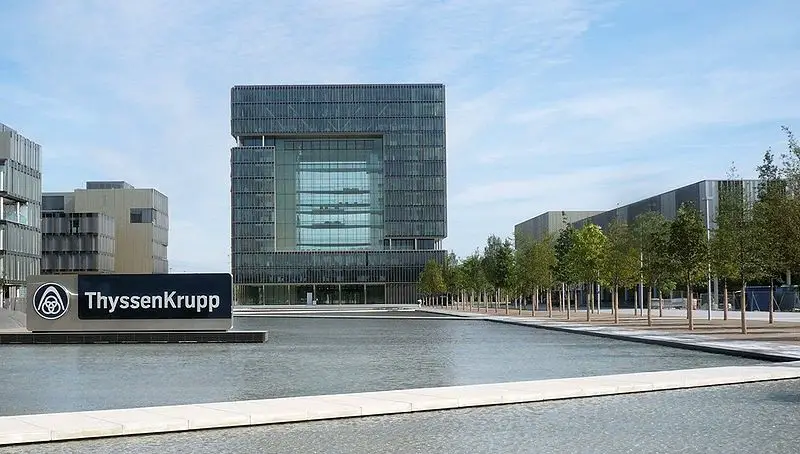
How small businesses are joining the critical sustainable entrepreneurship trend
July 15, 2019Small businesses and start-ups are looking to green and renewable strategies.
Green entrepreneurship is a concept that many people apply to large corporations. We tend to assume that renewable and sustainable business strategies are cost prohibitive. That said, when done properly, this could not be further from the truth.
Companies of all size see the importance of making more eco-friendly and sustainable choices.
There is no set definition of green entrepreneurship. It can involve anything from choosing the right eco-minded franchise with recycling and reusing policies in place and that use sustainable products and materials. It can also be a matter of small businesses and start-ups taking matters into their own hands to reduce their carbon footprints.
Steps can be taken gradually, or all at once, such as in the case of many businesses that are now choosing to reduce gas emissions from production or choosing renewable energy sources for power. Google, for instance, has received substantial applause for its use of solar power and wind energy. That said, just because your business is too small to afford a wind farm of its own, it doesn’t mean that greener choices aren’t available.
There are many simple ways to introduce sustainable entrepreneurship practices into a smaller business.
Despite the reputation for high cost, not all green business practices are prohibitively expensive. Moreover, among those that come with a higher price tag, there are more affordable choices, many of which are a great investment.
Consider the following steps entrepreneurs, self-employed people, small businesses and start-ups can afford. These all improve sustainability, reduce negative environmental impact and will sometimes even pay for themselves.
Here are 7 tips to become a greener small business:
1. Build a Mindset – If you are self-employed and are the only person in your business, you’re the only one who needs to make the choice and act on it. If you have employees, contract staff, volunteers or other workers on your team, create a company culture of energy efficiency, waste reduction, renewable product use and other key points. Encourage your team members to give their own ideas and feedback. This will not only inspire new positive changes but will also make them more receptive to embracing these goals.
2. Change Your Lighting Strategy – First, make sure you are meeting lighting regulations. That said, use fewer lights during the daytime and allow natural light to illuminate the workspace, if possible. Use LED lighting, which is considerably more energy efficient than fluorescents and incandescent lights. Turn most – if not all – lights off at the end of the day or when rooms are not in use.
3. Open a Green Franchise – If you’re looking for sustainable entrepreneurship in the form of a business with a strategy already in place, renewable energy franchises can provide you with an opportunity that is ready to go. There are a growing number of franchise businesses with a focus on substantial green efforts such as renewable energy use. Consider how they might fit with your entrepreneurial objectives.
4. Eliminate Disposable Plastic Bottle Use – Single-use plastics are swamping our recycling systems, landfills, land and waterways. Turn your business into a space that rejects their use. Get rid of the vending machine selling bottled water. Instead, choose a refillable water cooler or install a water filtration system in the office. Encourage employees to bring their own refillable water bottles (and coffee mugs, for that matter), or provide them with your own branded bottles and mugs to get the ball rolling.
5. Create Relationships with Other Green Businesses – When developing new relationships with vendors, suppliers, contractors and other professionals, look for those with similar-minded sustainable entrepreneurship practices. If their practices or products are not clearly identified on their websites, ask questions. Do they print on recycled paper? Do they minimize the use of plastics whenever possible? What other practices have they put in place in terms of the energy efficiency of their vehicles, manufacturing and other activities?
6. Reduce, Reuse, Recycle – This phrase has been repeated time and time again, but take it to heart and encourage your team to do the same. Try to reduce, reuse and recycle, in that order. Reduce first. If you really don’t need it, don’t get it. If you must use a product, opt for one that allows you to reuse it or that can be repurposed for reuse in another way. Finally, make sure that you’re choosing products that can be recycled once they have been reused or their life cycle with you is otherwise complete.
7. Opt for Green Cleaning Products – Green cleaning products are now readily available for businesses with a focus on sustainable entrepreneurship. Everything from floor and window cleaners to bathroom cleansers, and even dish soap is available in formulas that are better both for the environment and for the people working in your office. The added bonus to these products is that the sustainable, green options are frequently non-toxic to humans, unlike their heavily fragranced, toxic chemical-filled counterparts.



 With over 15 years of reporting hydrogen news, we are your premier source for the latest updates and insights in hydrogen and renewable energy.
With over 15 years of reporting hydrogen news, we are your premier source for the latest updates and insights in hydrogen and renewable energy.